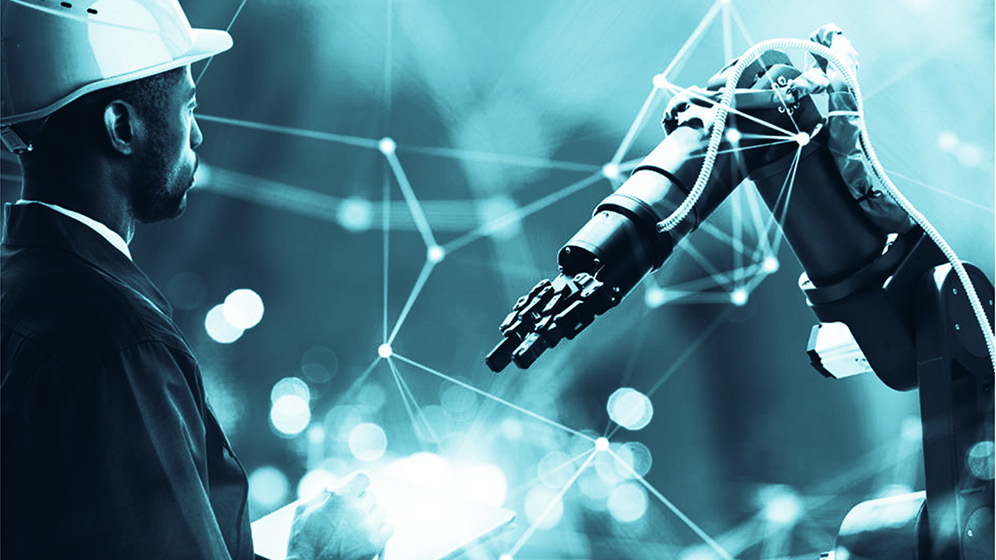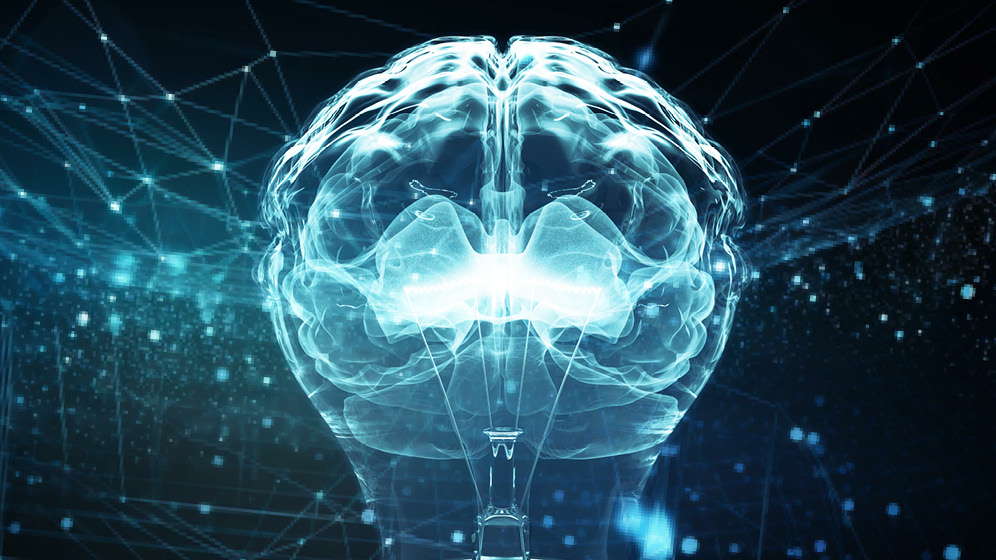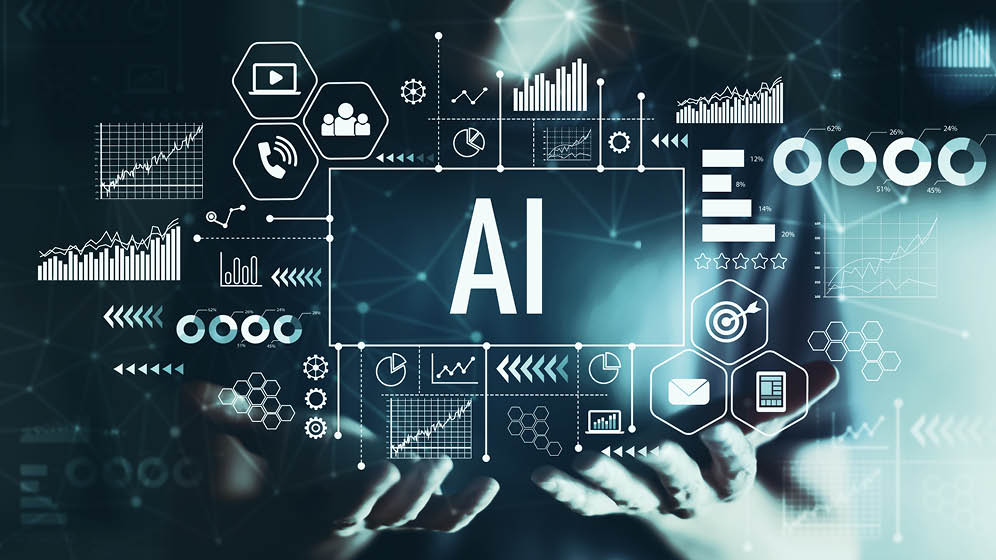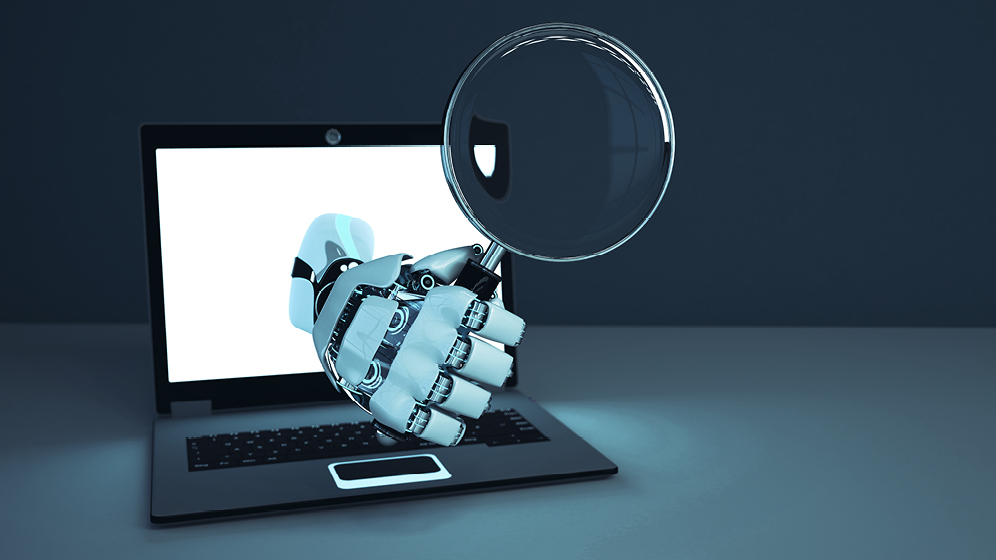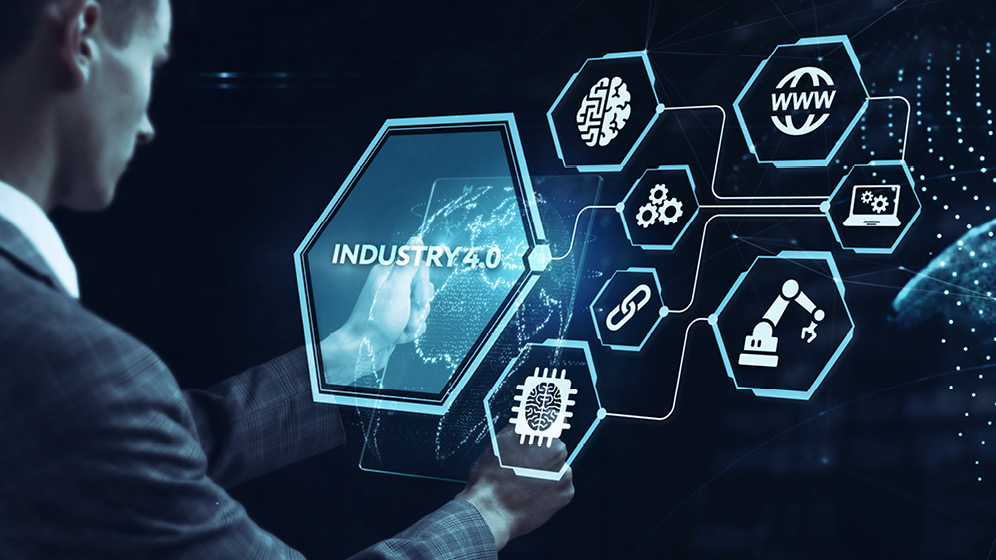
In a revolution, no stone is left unturned. This distinguishes revolution from evolution, in which one stone is laid on top of another until something new has emerged. A revolution requires a spark, an external impulse, a triggering event - evolution needs a KnowledgeBased on this, the most suitable solution is gradually developed.
That's why what we've known for just over ten years as "Industry 4.0" was merely an evolution. The revolution is only happening now: With the explosion of the power of Artificial Intelligence (AI) in Industry 4.0. Why do I think that is?
Each of the first three industrial revolutions can essentially be traced back to a technological leap that has massively changed production processes. These are not detailed technical improvements, but genuine universal technologies that have gradually found their way into all areas of work and life.
The consequences in each case were profound changes in social processes and workflows. Entire occupational groups disappeared because they simply became superfluous. At the same time, completely new fields of work emerged with previously unknown "job descriptions.
It is clear to everyone that all of this was missing from "Industry 4.0. Nevertheless, it is worth taking a look back: What were the decisive technological leaps that led to revolutions 1 to 3? Then it will become clearer why artificial intelligence or industrial AI is actually the starting signal for the fourth industrial revolution.
The first industrial revolution was of a mechanical nature: At the center was the steam engine, decisively developed by James Watt in 1769, it enabled the transition from manufactory to industrial mass production. It took a few decades for its use to become widespread - but then it was impossible to imagine life without it anywhere. Every railroad that moved mass-produced goods and the people accompanying them from one corner of the world to another, every steamship on the rivers and seas was a moving and doing signal for the victory of the first industrial revolution.
The second industrial revolution was electric. Here, too, it took a little time for the invention to unleash its revolutionary potential. The advantage of telegraphing messages from A to B, why an electric machine sometimes makes more sense than a steam engine, and that electricity is ultimately more efficient than petroleum or gas in lighting: this was not recognized as the lowest common denominator until the beginning of the 20th century.
In the factories, Henry Ford's introduction of the assembly line is regarded as the starting signal for electrically pimped production: The "mechanical assembly line" increased the productivity of automobile production immeasurably and made individual mobility - with the new invention of the internal combustion engine as the drive for the reinvention of the passenger car - affordable for broad sections of the population. The son of the night watchman who had lit the gas lanterns in the cities every evening did piecework on the assembly line - or better, he learned the new profession of electrician right away.
The third industrial revolution was digital. Whether you called it electronic data processing or information technology, computers began to work everywhere in the 1970s where previously only humans had been at work.
The decisive technological leap of this digital industrial revolution was the development of microprocessors in the 1970s, which turned space-filling computing machines into transportable devices. That this became the universal technology of our time within a very short time is well known: From personal computers to programmable logic controllers, from the World Wide Web to electric toothbrushes ... when chip supplies from Asia began to falter during the pandemic supply chain imbroglios, the entire global economy began to stumble.
And then, therefore, what we have been calling since the Hannover Messe 2011 the Industry 4.0 know: It refers to the "comprehensive digitization of industrial production" - in other words, nothing less, but also nothing more than the widespread realization of what began with the third industrial revolution.
Well ... it's just the first revolution that was proclaimed without a technical spark, without a real technological milestone. These are honorable efforts to give legs to a necessary step that was too slow and long overdue. Industry 4.0 simply lacked the universal technology that could change everything.
In today's Industry 4.0, this Technologiessprung now here. Since OpenAI released ChatGPT in late 2022, not a day has gone by without some stunning new AI tool. Artificial Intelligence has advanced in one fell swoop into an area previously reserved for humans: finding creative solutions to unstructured specifications. The potential of generative AI in Industry 4.0 cannot yet be estimated.
Even if we are currently at the peak of the hype curve, on a "plateau of exaggerated expectations", and a crash is to be expected as a consequence; even if the suspicion that in five years there will no longer be 300 programmers:in the world in five years, because AI tools will then be able to write any code, must first be proven; even if the new profession of "prompt writer" is so new that there are not even training courses for it; even if it is only beginning to crystallize which applications in industrial production can marry robotics and automation and make people forget about the shortage of skilled workers - industrial AI will become the universal technology that will turn over every stone and put it in a new place.
That is why we start the project www.industrial-ai.at
We do not yet know where AI applications will take us. Where industrial production in particular will be changed can only be foreseen in rudimentary form. But we are convinced that the development is irreversible. Whether there can be a moratorium on AI developments at all, what the AI Act of the European Union will be able to regulate in practice: All this is not yet foreseeable.
We will inform, discuss, analyze and thematize. We want to make the opportunities visible, point out undesirable developments, and present use cases and business models that make continuing education, which is still in its infancy, possible - because that is the only way to ensure competitiveness.
The fourth industrial revolution starts now - with you and with us.
Also of interest
